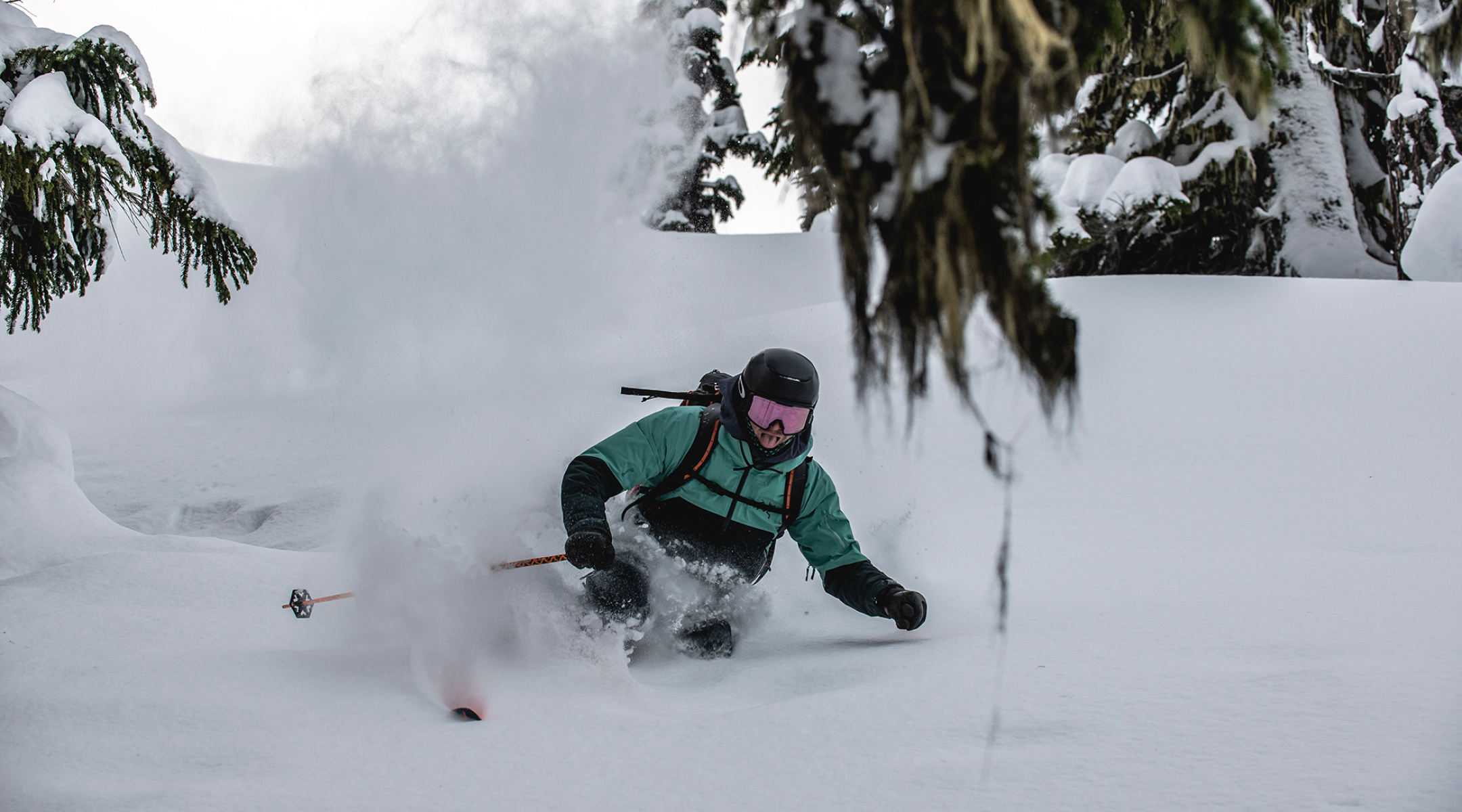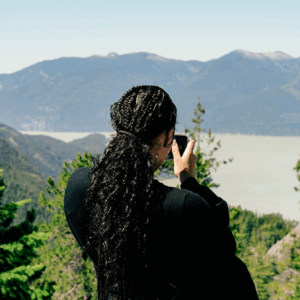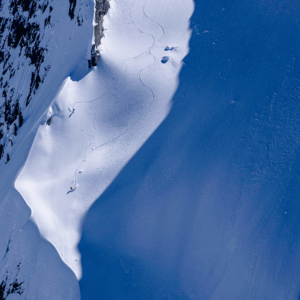The Making of a Guide: Ross Berg
Most 15-year-olds can’t tell you what they want to do when they grow up, let alone start working toward it. But the now-owner of Altus Guides has never been one for conventions
Words: Cayley Thiessen | Photos: Jessy Braidwood, Ross Berg
Ross Berg remembers the exact moment he decided his future. He was 15, hugging a wall in Squamish on a climbing tour with his parents, and fighting the leg shakes that come with trying a new outdoor sport. “I was nervous being up so high, but I felt so supported by the guide,” he says. “I thought, ‘What a unique and special experience that guides get to offer people, facilitating them out of their comfort zone.’”
It happened to be the second time the Red Deer, Alberta, native made big plans for a career, the first being a pro snowboarder five years earlier. That wasn’t weird. That was Ross. “Ever since I was a kid, I’ve always pursued any activity I did with great conviction and seriousness,” the now 37-year-old says.
While the snowboarding dream was…dreamy, the guide path started and ended in reality, requiring real-life experience in real mountain conditions. “I had no objective of making money and had no idea if it would be a good career,” Ross reflects. “I just wanted to challenge myself, and I thought it was such a cool gift to have these skills and be able to create experiences for other people.”
So with the permission of his parents, Ross finished high school online — virtually unheard of back in the early 2000s — and lived out of his car to ski winters in Rogers Pass and climb throughout summers in California. “When they were faced with the idea of me staying home and getting into fights, hanging out at the skate park, and going to parties; or spending time outside, sleeping in my car, and seeking out education from other professionals, it didn’t seem that out of the box,” Ross laughs. “I think it was the safer idea.”
 I just wanted to challenge myself, and I thought it was such a cool gift to have these skills and be able to create experiences for other people.
I just wanted to challenge myself, and I thought it was such a cool gift to have these skills and be able to create experiences for other people.
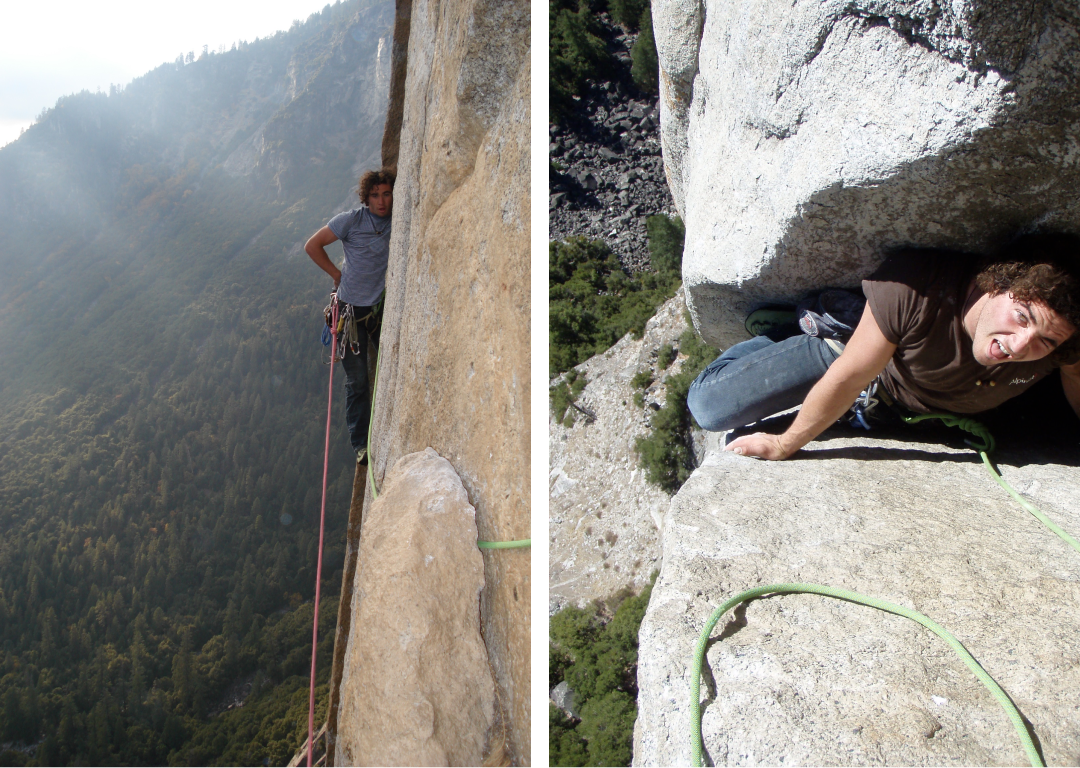
Learning the Literal Ropes
While working on his diploma, Ross started taking the first steps on his road to becoming a mountain guide, completing his avalanche safety training (AST) courses and hiring guides to take him into the backcountry. By the time he was 19, he had enough experience — and was finally officially old enough — to apply for a formal guiding program.
It took a year to complete the first certification as an apprentice alpine guide in Canada, which granted him the opportunity to work as a guide in Europe (other places had longer requirements). Off he went to Chamonix, inspired by the iconic peaks he’d long dreamt of seeing up close. Ross took note of the things he loved most about his summers guiding in Europe: respect for the craft, interesting work, good pay, and close access to world-class terrain that still allowed you to enjoy the creature comforts of home. Those values grounded his vision for the kind of experiences he wanted to create on his own, back on his home turf.
Now, with 18 years of guiding experience and 13 years as a full mountain guide, Ross is the owner and head guide of Altus Mountain Guides and Phantom Heli-Skiing, two operations helping people get into the mountains in British Columbia’s famed Sea-to-Sky corridor. Since 2012, Altus has seen more than 10,000 people climb, ski, hike, and run in the backcountry safely. Phantom, a newer venture that started in 2020, specializes in more customized trips for smaller groups.
“I thought that Whistler provided the opportunity to create a European-style mountain guiding lifestyle,” says Ross, on his decision to plant his roots in BC. “You can do epic day trips and still sleep in your own bed at night because the towns are so close to big-mountain terrain. I wanted that for myself and my community, while offering stimulating work with more competitive pay. That was the main reason to evolve the guiding industry and make it something that was way better for us.”
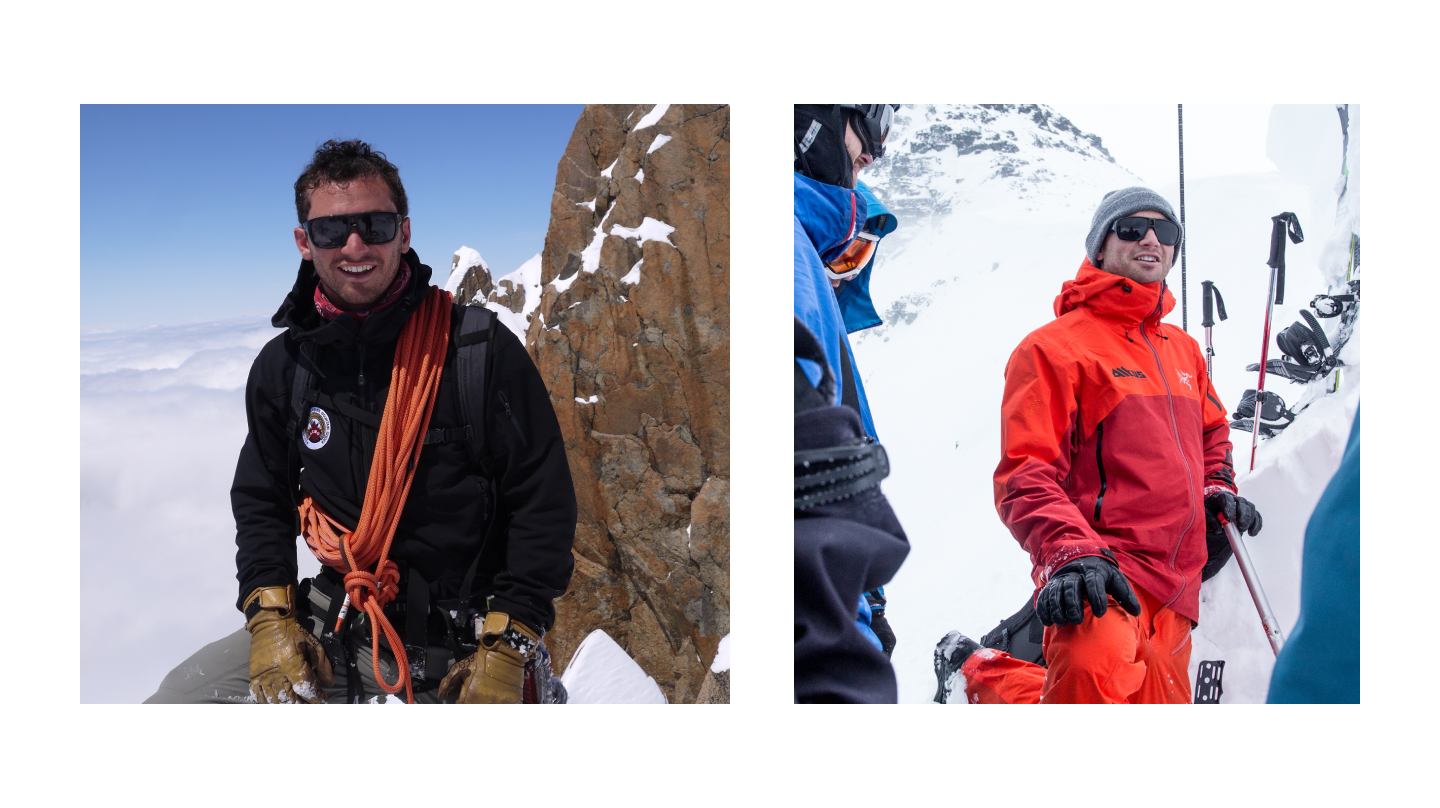
A Guide’s Guide to Growing Up
Of course, getting to this point didn’t happen easily.
In 2006, when Ross started taking his first official courses through the Association of Canadian Mountain Guides (ACMG), the landscape looked different than it does today — “a bit of an old boys’ club,” in Ross’s words. And though he’d spent years earning his own portfolio in the mountains, when it came to his guiding courses in Canada and early guiding work in Europe, Ross admits he felt like a child among men. “It wasn’t the easiest environment. I was quite young and didn’t have any other workplace experience, so that was challenging.”
Never one to shy away from an obstacle, Ross buckled down and tried to take as much as he could from the whole experience: learning the obvious hard skills needed to be a successful mountain guide, but also observing the more personal skills that would take him to the next level.
“I almost thought of it as my ‘man exam,’ because I was 19 and I didn’t know how to be confident,” he says. “How do I show up in this leadership position and own my decision making?”
Surrounded by peers who had years on him, Ross decided to turn his situation into an opportunity. “I was very adamant about asking people for help and making it transactional. Like, ‘I will come help you on your courses for free if you’ll give me notes.’ I had a handful of guides let me come on trips with them so I could see them work, and they’d let me go in the front and tell me what I could do better. It was really helpful to have these older professionals that I could look up to.”
Often, that meant throwing himself into the deep end. “I believe you learn quicker that way,” says Ross. “If you put yourself in a position to be challenged, it’s going to be hard, but assuming you stick it out and have some aptitude for it, you’ll see the benefit faster.”
As Ross watched his mentors practice the nuances of guiding in real time — going through their pre-trip process and morning meeting routine, distilling information and evaluating risk to make safe plans, and creating a supportive, comforting environment for the group — he made a conscious effort to mirror them until he felt confident in himself, a feeling he knew would come eventually.
“It’s how my brain works. If I decide I’m going to do something, there’s not really anything that can dissuade me. I was really married to the process.”
 I believe in throwing yourself into the deep end. If you put yourself in a position to be challenged, it’s going to be hard. But assuming you stick it out and have some aptitude for it, you’ll see the benefit faster.
I believe in throwing yourself into the deep end. If you put yourself in a position to be challenged, it’s going to be hard. But assuming you stick it out and have some aptitude for it, you’ll see the benefit faster.
A Lifetime Education
Even once he’d become a certified mountain guide and started building his company, Ross continued observing — this time, himself.
For instance, as he felt more comfortable in the field, he noticed he wasn’t 100 percent present at all times. Like any human, thoughts of his personal life would pop up throughout the day on trips. It never led to a safety issue, but it messed with his focus — which, for Ross, has never been OK. “That was a big learning: how to leave your personal life and thoughts on the backburner. The trick is to write them down, so you can acknowledge them and then file them away while you’re out there. Guiding, and life, is about creating the space to observe, intuitively.”
Ross also honed his cost-benefit analysis over the years, naturally and proactively. “Your risk aversion as a young male is not fully formed,” he says, thinking back to his early days. “I wanted to go climb and guide all these things and challenge myself in that arena. Now I’m pretty happy to question why younger guides today take certain risks. The challenge, I’ve learned, is in not taking those risks. As a guide or anywhere else, you can’t be a leader if you’re not stacking your wishes against reality.”
It’s these skills — helping people be more self-aware, attuned to their environment, and smarter decision makers — that Ross takes most pride in passing on to the next generation of guides and his clients.
“It’s a very individual profession; you’re working by yourself, quite often in the middle of nowhere. And even though all guides are on the same team, it can be competitive and isolating,” Ross says. “We do it because it’s a passion, but it comes with a lot of weight. That’s why I think if you can share what you’ve learned, you create a safer and more enjoyable space for everyone.”
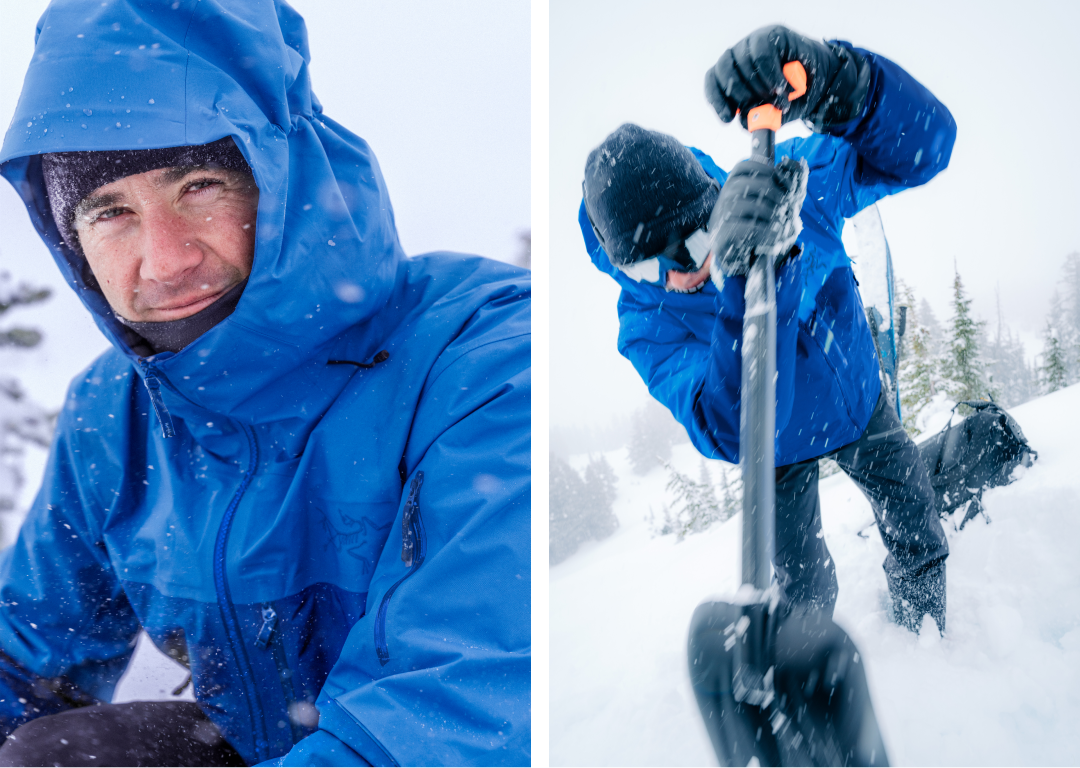
The Next Ride
Having reached many peaks in his nearly double-decade career, Ross is ready to take on new challenges. Luckily a guide’s life is seasonal, leaving him plenty of time to focus on something else in between summer climbing and winter ski missions. Next up, a home construction project in Kauai, Hawai’i, that Ross enjoys because “it’s creative but with consequences, just like skiing” — and embracing a whole new sport: surfing.
Finding a new outdoor pursuit where he’s not an expert has brought Ross back to that fateful day on the wall in Squamish, the one that led him right to this moment.
“I’ve been in the mountains so long that I know them and they know me, which is comforting,” he says. “But the ocean is cryptic — it’s hidden, it doesn’t show itself. I don’t have that same level of intimacy, and that excites me. It means I have so much I can learn.”
That’s what it all comes back to for Ross: It’s not about the achievement, it’s about the process. The steps taken, the skills learned, and the effort invested in doing something you love, just because you love it, and then sharing it with others.
